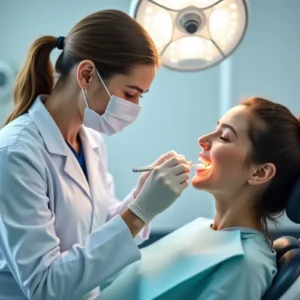Acne vulgaris, commonly known simply as acne, is a dermatological condition that encompasses more than the visible imperfections on the skin’s surface. It represents a profound disturbance of the skin’s pilosebaceous units, which include hair follicles and associated sebaceous glands.
While acne is notorious for its presence during teenage years, it stubbornly persists or sometimes appears for the first time in adulthood. The psychological burden of coping with acne, often underestimated, can be as substantial as the physical symptoms.
Thus, it’s crucial to approach treatment holistically, integrating acne treatment systems that can address the condition’s complexity and bring profound relief.
Contents
- 1 Pinpointing Acne’s Instigators
- 2 Acne Across the Ages: Adolescence to Adulthood
- 3 Assessing Diet’s Impact on Acne
- 4 Stress and Acne: Breaking the Cycle
- 5 Skincare Strategies for Acne
- 6 Evolving Solutions: New Topical Treatments
- 7 Acne and the Mind: Charting the Mental Maze
- 8 Acne Treatment Horizons: Promising Possibilities
Pinpointing Acne’s Instigators
Scrutinizing the causes of acne can reveal a tangled web of factors that perpetuate this common skin concern. Beyond hereditary predisposition, acne can be provoked by hormonal imbalance, which is why it often surges during puberty, pregnancy, or with certain medical conditions like polycystic ovary syndrome.
A closer look at our living environment, underscored by research such as that collated by the National Center for Biotechnology Information, shows that air pollutants and certain climate conditions may also escalate the risk of developing acne by increasing skin inflammation and clogging pores with impurities.
Therefore, treatment strategies sometimes must extend beyond the medicine cabinet, addressing root causes wherever possible.
Acne Across the Ages: Adolescence to Adulthood
While the narrative around acne traditionally focuses on its presence during the teenage years, adult acne presents a unique set of challenges.
The causative factors for adult acne are often distinct, intertwining hormonal changes with lifestyle factors such as stress or diet. Adults with acne are also likely to seek solutions that offer anti-aging benefits, reflecting the complexity of skincare needs at this stage of life.
The chronic nature of adult acne requires long-term management, emphasizing the need for sustainable and well-tolerated treatments that support overall skin health.
Assessing Diet’s Impact on Acne
Investigating the role of dietary habits in acne development is like navigating a maze with many potential pathways and few clear directions. While high glycemic foods and dairy have been implicated in exacerbating acne symptoms in select groups, individual experiences can vary widely.
Dietary assessments, preferably guided by nutrition professionals, should be part of a comprehensive acne management plan, especially for those who perceive a link between their food choices and skin condition.
Such tailored interventions, alongside other treatment modalities, can synergistically work towards clearer skin.
Stress and Acne: Breaking the Cycle
Under the skin’s surface, stress activates a hormonal flux that can increase oil production and inflammation, both precursors for acne. For many, stress is the hidden accelerant to stubborn breakouts, not only intensifying acne’s severity but also hindering the healing process.
This establishes a vexing cycle where stress leads to acne, which causes more stress. Stress reduction techniques such as mindfulness, yoga, and adequate sleep can have a dual benefit by calming the mind and, potentially, the skin.
Skincare Strategies for Acne
Skincare has no universal fix for acne; a targeted and individualized strategy is more likely to yield satisfactory results. A regimen that incorporates ingredients with proven efficacy, such as salicylic acid for exfoliation or niacinamide for inflammation, is a good starting point.
For those with severe or persistent acne, treatments like Isotretinoin (commonly known as Accutane) may be recommended. This prescription medication is highly effective in managing stubborn cases, but it requires medical supervision and adherence to specific guidelines due to potential side effects. Understanding how to get Accutane involves consulting a dermatologist who can assess your suitability for the treatment.
The American Academy of Dermatology further advises on factors including the timing and sequence of product application, available in their valuable tips, underscoring the importance of understanding how to best use these products as part of a comprehensive approach to acne treatment.
Evolving Solutions: New Topical Treatments
The landscape of topical acne treatments is continually evolving, with scientific advancements leading to new and improved formulations. These innovations aim to enhance product efficacy while reducing side effects, often through novel delivery systems or ingredient combinations.
The ongoing quest to refine these treatments underscores the importance of keeping informed about the latest options and understanding their potential impact when introduced into an existing skincare regimen.
Acne and the Mind: Charting the Mental Maze
The connection between acne and mental health can be intricate and profound. Individuals living with acne may experience social anxiety, decreased self-esteem, and, in severe cases, depression.
Recognizing and addressing the psychological aspects of skin health is vital, as emotional stressors can manifest physically and impede healing. Whether through therapy, support groups, or mindfulness practices, mental health support should be considered an integral part of a multi-pronged treatment strategy.
Acne Treatment Horizons: Promising Possibilities
The future of acne treatment is refracting through the prism of research, with promising leads on vaccines, anti-inflammatory agents, and targeted therapies. These emerging treatments, sparked by a deepened understanding of acne’s pathology, have the potential to redefine standards of care.
As the field progresses towards more customized therapy, there is a palpable sense of optimism for new approaches that not only clear acne but do so with a focus on the patient’s overall health and quality of life.



